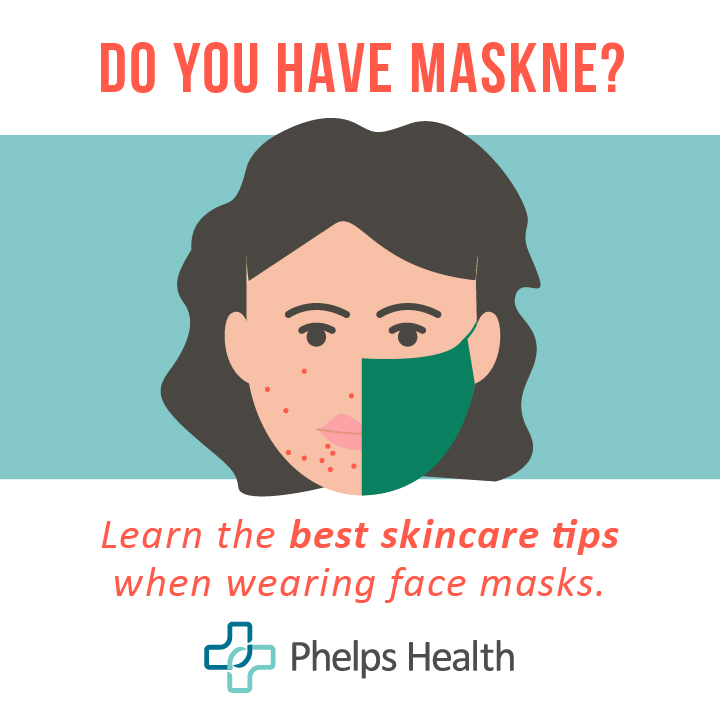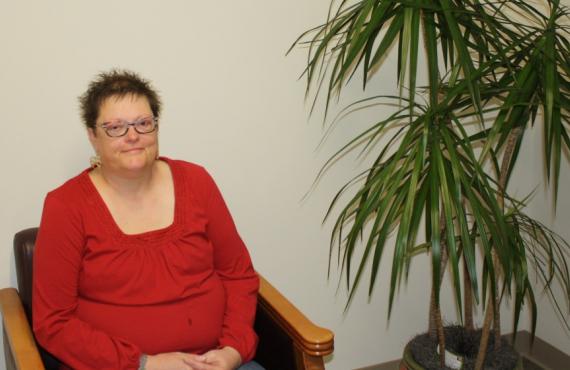Published on October 23, 2020
 Wearing face masks is a good way to help prevent the spread of respiratory illnesses, like COVID-19 and the flu. Sometimes, when people wear face masks for long periods of time, acne can form on the skin under the mask -- a term sometimes referred to as “maskne.”
Wearing face masks is a good way to help prevent the spread of respiratory illnesses, like COVID-19 and the flu. Sometimes, when people wear face masks for long periods of time, acne can form on the skin under the mask -- a term sometimes referred to as “maskne.”
Answers by Phelps Health Nurse Practitioner Amanda Creamer
Q: What are the contributing factors to acne getting worse due to wearing masks?
A: “Maskne” is thought to be formed by hair follicles being blocked due to friction and pressure from the mask. In addition, the combination of heat and moisture can alter the microbes on the skin.
Q: What are some ways to prevent acne associated with mask wearing and what treatment options are available?
A: Daily skin care routine is key. Remember the following:
• Cleanse and moisturize your face daily with a gentle fragrance-free cleanser.
• Minimize makeup use.
• Use a mask that has a comfortable but snug fit, and try not to frequently adjust the mask.
• Take a mask break, as needed, in a designated area.
• If your mask is reusable, wash with a hypoallergenic laundry detergent after every use.
• Consider other contributing factors such as stress and diet.
• Avoid high-fat and high-glycemic foods, which can trigger acne.
• Treatment can include spot treatment with antimicrobials such as benzoyl peroxide.
Q: Why is wearing a mask still important even if you are experiencing skin issues?
A: Wearing a mask is important, according to the Centers for Disease Control and Prevention (CDC) guidelines, to protect your personal health as well as the health and safety of patients, their families and other staff members.
Get Helpful Tips
To learn other helpful tips and information regarding COVID-19, please visit our COVID-19 page.

